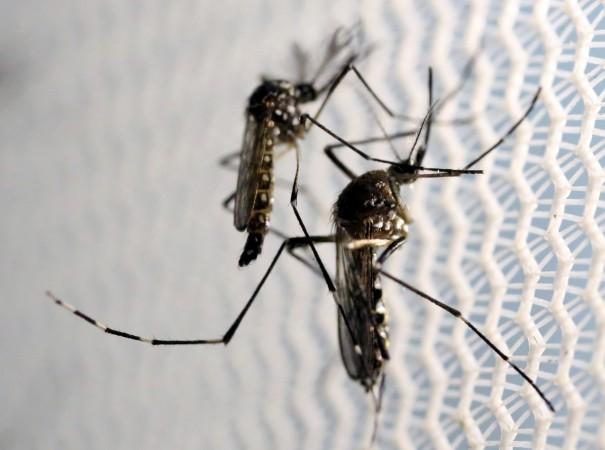
The outbreak of vector-borne diseases like chikungunya and dengue in the national capital is making headlines and has become a cause of concern for everyone, particularly the residents of Delhi.
Recent reports stated that even celebrities like Vidya Balan and cricketer Ishant Sharma have been infected with chikungunya. According to the National Vector Borne Disease Control Programme (NVBDCP), about 12,255 cases of chikungunya were reported throughout the country till 31 August, 2016.
IBTimes interviewed Dr J L N Sastry, the Head of Health care Research in Dabur Research & Development Centre. He belongs to a traditional Ayurvedic family of Kakinada, Andhra Pradesh and is an Ayurvedic Scholar with more than 25 years of experience in this field.
In this interview, Dr Sastry tells us how Ayurveda can help in preventing these vector-borne diseases. Dr Sastry has published more than 15 reference books on Ayurveda and has had over 30 articles published in various journals and newspapers.
IBTimes: What inspired you to come up with the idea of using Ayurveda as a preventive method for dengue and chikungunya?
Dr Sastry: I have been practising Ayurveda for over two decades. It's when you actually work on an issue that you get to know what the real problem is. Issues and people's agony pushed me to look for the solution.
IBTimes: How successful has the idea of using Ayurveda medicines as the remedy to combat these diseases been so far? Do you think only Ayurveda has the power to do so?
Dr Sastry: Ayurveda specially believes in controlling and combating newly emerging conditions. Viral infections keep on changing their course and new viruses emerge. It is advised that the physician needs to address these new diseases on the basis of symptomatology. In case of Dengue, the main concern is low platelet count (thrombocytopenia). Palliative Ayurvedic herbs like Giloy (Tinospora cordifolia) and Manjistha (Rubia cordifolia), which are known for managing the platelet count can be consumed to curb the problem.
I will never say that only Ayurveda can manage these condition since we have not made enough documentation of this condition the way it needs to be. But it is heartening to note that some physicians and Central Council for Research in Ayurvedic Sciences (CCRAS) are working on it and through our Science-based ayurveda we are planning to do a project with them.
IBTimes: How cost-friendly are these Ayurvedic medicines which are used to prevent the vector-borne diseases?
Dr Sastry: These classical formulations like Sudharshana Ghana Vati, Swarnaguggulu etc are not at all costly. They are very reasonably priced. In fact, they are available at all the Ayurvedic outlets.
IBTimes: Do you aim to come up with more Ayurveda medicines for other disease outbreaks in the future?
Dr Sastry: Yes, we are in the process of coming up with more medicines for other diseases also. Currently we are working on Malaria as tackling disease is still a big challenge in the country.
IBTimes: Do we require doctors' prescription in order to buy these medicines?
Dr Sastry: Some of them (Schedule E-1 ingredients) do require prescriptions from doctors. As the mode of consuming them and the quantity varies from case to case and individual to individual. Otherwise, they don't require prescription. As these products are natural, they are relatively safer to consume.
IBTimes: Is there any tip for the audiences to stay safe from these ailments using Ayurveda ingredients which are easily available at home?
Dr Sastry: We encourage people to include Ayurveda in their daily lives. Let's assume a person is suffering from dengue or chikungunya, others around him will be at a high risk of getting infected too. In such circumstances just by taking Ayurvedic herbs like Ashwagandha, Shatavari, Mulethi, Amla, Tulsi etc., we can boost our immunity. These herbs are easily available. Apart from this, we should maintain cleanliness in and around our house and prevent these diseases from spreading further.
Here are some basic tips to help you prevent vector-borne diseases:
- Apply insect repellent before sleeping and stepping out after dark.
- Opt for full-sleeved clothes in order to avoid insect from biting.
- Use a bed net to prevent insect and mosquito bites.
- Cover doors and windows with meshes to prevent insects from entering the house.
- Maintain cleanliness in the house and prevent water stagnation in the surrounding areas.

















